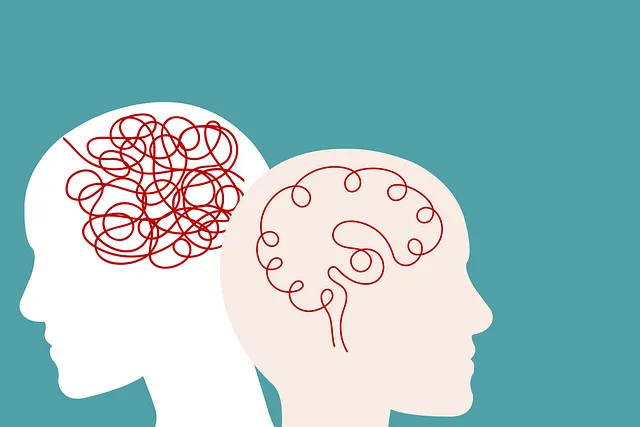The Lone Tree Kaiser Permanente mental health center reviews highlight successful initiatives combining mindfulness, cognitive-behavioral therapy, and physical activity to enhance healthcare professionals' resilience and reduce burnout. These programs, focused on the RFM (Recovery, Resilience, Mental Fitness) framework, include Stress Management Workshops and Burnout Prevention Strategies, promoting emotional regulation, stress reduction, and improved mental well-being through holistic practices backed by positive reviews. Incorporating rest, focus, and movement into daily routines, as advocated by these workshops, can significantly enhance long-term mental health and resilience.
“Discover the power of resilience through RFM (Recovery, Flexibility, and Mastery) exercises at Lone Tree Kaiser Permanente’s mental health center. This article explores how structured programs enhance well-being, drawing from real-world insights. We examine the impact on mental health, highlight common activities with proven benefits, and provide guidance on integrating RFM into daily routines for long-term resilience. For those seeking mental health center reviews in Lone Tree, this comprehensive guide offers valuable perspectives.”
- Understanding RFM and its Role in Resilience Building
- The Impact of Exercises on Mental Health at Lone Tree Kaiser Permanente
- Common Resilience-Building Activities and Their Benefits
- Incorporating RFM into Your Routine for Long-Term Wellness
Understanding RFM and its Role in Resilience Building

Resilience is a vital asset in the healthcare industry, where professionals often face high-stress environments and demanding situations. This is where RFM (Recovery, Resilience, and Mental Health) comes into play as a transformative framework. The RFM approach focuses on empowering individuals to navigate challenges and build mental fortitude, especially in the context of Burnout Prevention Strategies for Healthcare Providers. By integrating practices tailored to their unique needs, healthcare workers can enhance their ability to cope with stress and adversity.
The Lone Tree Kaiser Permanente mental health center reviews highlight successful resilience-building initiatives that have positively impacted professionals’ well-being. These programs often include various techniques, such as mindfulness exercises and cognitive-behavioral therapies, which aim to reduce Mental Illness Stigma Reduction Efforts while boosting confidence. Through these interventions, healthcare providers can develop a deeper understanding of their emotional responses and cultivate strategies to maintain resilience in the long term.
The Impact of Exercises on Mental Health at Lone Tree Kaiser Permanente

At Lone Tree Kaiser Permanente mental health center, exercises focused on resilience and RFM (Recovery, Resilience, and Mental Fitness) have shown significant impacts on improving patient mental health. These initiatives go beyond traditional therapy sessions, offering a holistic approach that includes various activities designed to build strength and coping mechanisms. The mental health professionals at Lone Tree Kaiser Permanente are dedicated to helping patients navigate stressful situations and prevent burnout, which is prevalent in the healthcare industry.
Through regular Stress Management Workshops Organization and tailored Burnout Prevention Strategies for Healthcare Providers, patients gain valuable tools to manage their mental well-being. These workshops encourage participation in physical activities, mindfulness practices, and social connections, all of which contribute to a healthier and more resilient mindset. The positive outcomes have been evident in patient reviews, with many expressing improved ability to cope with challenges and enhanced overall mental health.
Common Resilience-Building Activities and Their Benefits

In the realm of mental health care, resilience-building activities have emerged as potent tools for fostering strength and well-being, especially in challenging times. Common practices include mindfulness meditation, where individuals learn to focus on the present moment, reducing anxiety and promoting calmness. This technique, often taught at Lone Tree Kaiser Permanente mental health center reviews, has been shown to significantly enhance emotional regulation, a key component of overall resilience.
Additionally, engaging in physical exercise, such as yoga or even simple walks in nature, stimulates the release of endorphins, contributing to improved mood and stress reduction. These activities are not merely recreational; they form part of a comprehensive Mental Health Policy Analysis and Advocacy strategy. Resilience-building workshops organized by Stress Management Workshops Organization cater to diverse populations, empowering individuals to navigate life’s obstacles with enhanced flexibility and mental fortitude. By incorporating such practices into their routines, people can build resilience, a crucial aspect of maintaining good mental health, as underscored by the positive impact on well-being evident in various research studies.
Incorporating RFM into Your Routine for Long-Term Wellness

Incorporating RFM (Rest, Focus, Movement) into your daily routine can significantly contribute to long-term wellness, as advocated by professionals at Lone Tree Kaiser Permanente mental health center reviews. This approach integrates three essential components of emotional healing processes: rest, focus, and movement. By dedicating time for each, individuals can prevent burnout and create a resilient mindset. Resting allows the mind and body to rejuvenate, while focused activities nurture cognitive clarity and emotional stability. Incorporating physical movement boosts confidence and strengthens the connection between mind and body, promoting overall mental well-being.
Regular practice of RFM exercises not only enhances resilience but also empowers individuals to navigate life’s challenges more effectively. This holistic approach supports burnout prevention by creating a balanced lifestyle that respects both mental and physical health. Moreover, it serves as an effective tool for confidence boosting, enabling people to embrace their inherent strength and adaptability in the face of adversity.
Resilience is a powerful tool for navigating life’s challenges, and exercises like RFM, as demonstrated at the Lone Tree Kaiser Permanente mental health center (as evidenced by positive reviews), offer a structured approach to building this strength. By integrating RFM into daily routines, individuals can enhance their ability to cope with stress, improve overall well-being, and foster a more resilient mindset. These exercises are accessible and effective, enabling people to take control of their mental health and embrace life’s ups and downs with greater confidence.






